TIA Services
What is a TIA?
A transient ischaemic attack or TIA is also known as a mini-stroke. It is the same as a stroke, except that the symptoms last for a short amount of time and no longer than 24 hours. This is because the blockage that stops the blood getting to your brain is temporary.
More than one in 12 people will have a stroke within a week of having a TIA. Because of this, a TIA is often called a warning stroke. Research has shown that specialist assessment and investigation promptly after TIA helps to reduce risk of stroke by 80%. So seek medical attention urgently.
Access to the TIA clinic occurs daily. You can be referred by your GP or the emergency department.
Stroke Association - TIA leaflet
What to expect from the TIA clinic
Please allow 2 hours for your first appointment with us. For some people the appointment will be much quicker but others may require tests (done that day).
You will have an assessment with a specialist (doctor or nurse) which will take approximately 30 minutes. The specialist will ask you questions about your recent symptoms and perform an assessment.
After this they will discuss your working diagnosis. Approximately 50% of people that are referred to us have not had a TIA (as other conditions can cause symptoms to present in a similar way). The specialist may think it would be useful to have tests to help with diagnosis and management.
The specialist may also start you on some medications which you can collect from the hospital pharmacy before leaving.
Stroke Association - Blood thinning medications leaflet
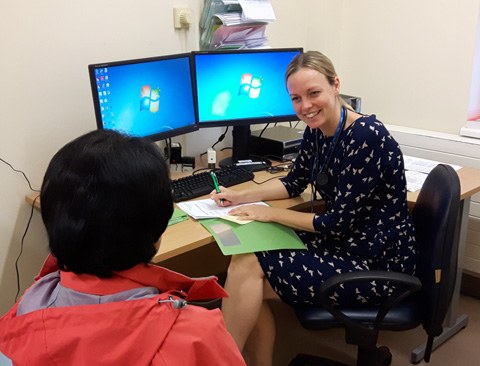
Tests you may have as part of your care with us
CT brain scan
A special x-ray that passes over your head to check for any changes in the brain.
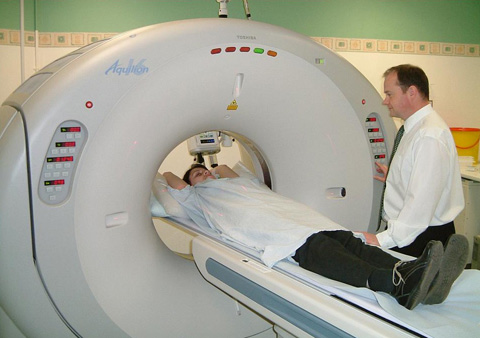
MRI brain scan
Uses powerful magnets to take detailed pictures of the brain. You lie on a trolley that travels into a tube shaped scanner.
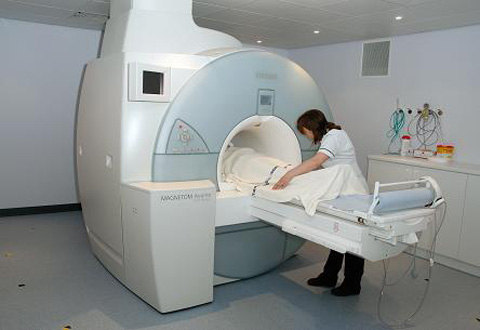
Carotid Doppler
An ultrasound scan of both sides of your neck, checking for narrowing of the blood vessels that takes blood to your brain.
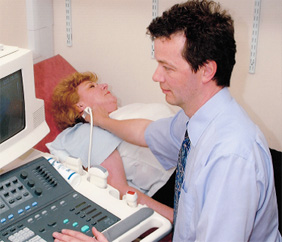
ECG
An ultrasound scan of both sides of your neck, checking for narrowing of the blood vessels that takes blood to your brain.
Blood tests
To check blood sugar and cholesterol levels. Tests will also check that your blood is not too thick or thin.
24 hour ECG Monitor (24 hour tape)
Another ECG but recorded over 24 hours whilst you are at home. A small recorder is carried around waist level and attached to leads taped on your chest. This is useful to screen for irregular heart rhythms.
Echocardiogram
An ultrasound scan takes detailed pictures of your heart. This is carried out by applying jelly to the chest and using a surface probe to scan the heart area.
Five to seven day ECG monitor (Novacor)
Another home ECG monitor but recorded over five to seven days. A small recorder is attached to leads taped on your chest. This is useful to screen for irregular heart rhythms.
TIA clinic - patient information leaflet
What do I need to bring?
- Please bring an up to date list of your medications with you
- If there was a witness to the event it may be useful for them to attend the appointment with you.
Where do I go?
Monday to Friday - Clinics are held in the main outpatients department at Royal Bournemouth Hospital. Please check in at the reception desk.
Weekends/Bank holidays – clinics rotate between Bournemouth, Poole and Salisbury at the weekends. If you have been booked to a weekend clinic at Bournemouth please go to the Ambulatory Emergency Clinic (AEC) located next to the Discharge Lounge.
Driving information
You will be asked to remain off the road when you are referred to the TIA clinic. Further guidance will be provided at your appointment. Usually the DVLA advice advises 1 month off the road - for some circumstances this will be different. Please see the DVLA website for further information.
Link to download the Stroke association driving booklet.
TIA Nurse Follow Up Clinic
You will be offered an appointment with a TIA Nurse Specialist. This will usually occur approximately 1 month after your initial appointment in the TIA Clinic.
What to expect at this appointment?
The appointment will usually last approximately 45 minutes, during this time we will discuss the following with you:
- Your diagnosis
- Your test results
- We will review your medications (please bring a current list with you). Usually new medications are started at your first appointment, it is important to ensure these are continued from your GP (unless we state otherwise). We will check for possible side effects and discuss longer term treatment plans.
- We will check blood pressure and pulse and provide a target for future monitoring.
- We will discuss lifestyle changes and can provide links to other support services to help you achieve any personal lifestyle goals.
During this appointment you will have opportunity to ask questions about your health and diagnosis. Please feel free to bring a family member or friend with you if you feel this would be useful.
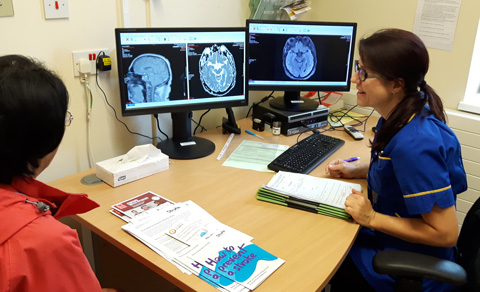
Contact Details
Email: This email address is being protected from spambots. You need JavaScript enabled to view it.









